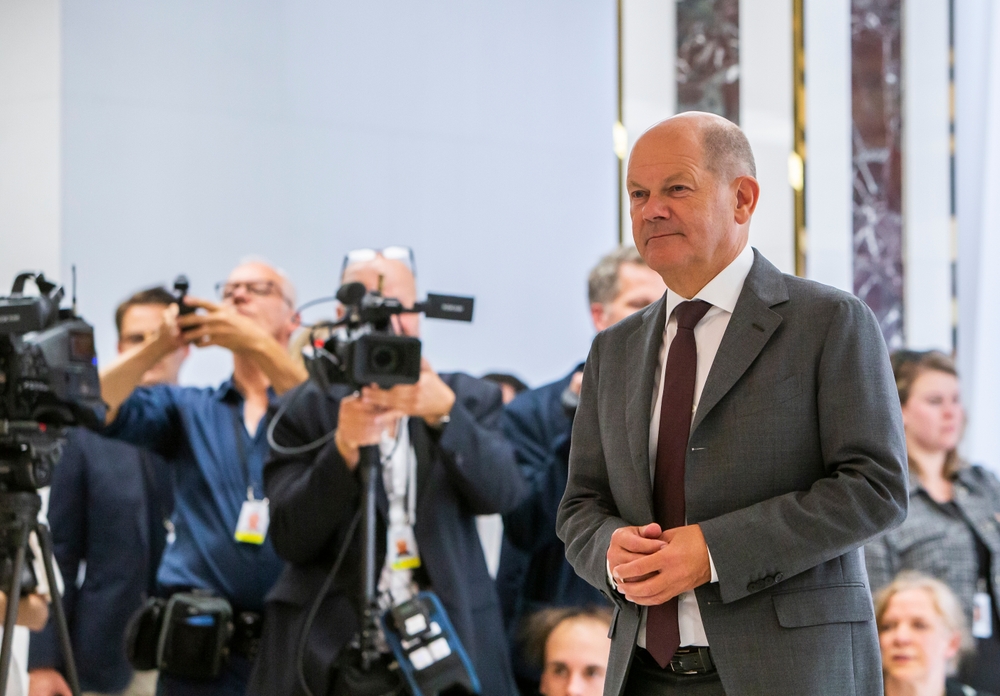German Chancellor Olaf Scholz held a one-hour phone conversation with Russian President Vladimir Putin on Friday, marking the first contact between Germany and Russia in two years. The call, initiated by Scholz, was primarily aimed at urging Putin to withdraw troops from Ukraine to pave the way for peace negotiations. While the call is unlikely to result in immediate developments, Scholz’s diplomatic move may be seen as an attempt to strengthen his position in the midst of a political crisis in Germany, especially after Donald Trump’s victory in the United States elections.
Scholz’s government is facing significant political instability, with early elections scheduled for February 23. Scholz, whose popularity has been steadily low, leads the Social Democratic Party (SPD), which is trailing behind the center-right Christian Democratic Union (CDU). Far-right and far-left movements have gained considerable momentum, with growing skepticism about continued military and financial support for Ukraine. Scholz’s diplomatic initiative may have been aimed at showcasing his European leadership to the domestic public and signaling to voters seeking an end to the war, regardless of its consequences for Ukraine.
The diplomatic call also came at a time when the international landscape is shifting, particularly following Trump’s election victory. The incoming president has promised to initiate peace talks with Russia, even claiming he could end the war in a day. Trump’s rhetoric, alongside growing Republican doubts about the ongoing support for Ukraine, has raised concerns that Europe might be left isolated or sidelined in future peace negotiations, with the U.S. potentially bypassing Europe entirely. Scholz’s call to Putin was, in part, a bid to reaffirm Europe’s role in the peace process.
The conversation itself did not lead to any significant breakthroughs. Scholz reiterated Germany’s unwavering support for Ukraine and condemned Russia’s attacks on civilians, while Putin insisted that Ukraine must make territorial concessions and guarantee its neutrality—specifically, that it will not join NATO—before negotiations could proceed. Before speaking with Putin, Scholz had also spoken with Ukrainian President Volodymyr Zelensky, who criticized the call, believing it would break Putin’s isolation and lead to futile negotiations. Zelensky remains more optimistic about Trump’s potential role in ending the war, stating that the conflict would likely end sooner under the new U.S. administration.

